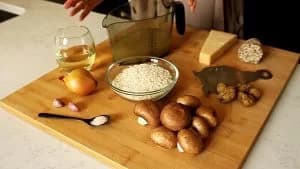What is truffle oil and is it worth buying? Gordon Ramsay says no. In fact in 2011 he called it ‘ one of the most pungent, ridiculous ingredients ever known to [chefs]’
Should we take the chef’s word for it? Probably yes, the guy has got a notoriously vicious tongue as well as 3 Michelin stars. However truffle oil is a controversial ingredient. Now firmly in the doghouse, it was once widely used in the best of kitchens.
Even in Ramsay’s case there has been a similar turnaround. Just a couple of years prior to his Masterchef rant, he appeared in another far kinder video promoting the use of white truffle oil. Who would believe it ? Here is a calmer version of Gordon rustling up his ‘Truffled Cream Cheese’ by first chopping up a few chives and then merrily pouring truffle oil over a pack of Philadelphia.
He then recommends knocking up this truffly, cheesy creation for your pre-Christmas dinner snack to soothe the spirits of your cranky guests. If you are still not convinced by his amuse-bouche, then you will be as Gordon confides ‘we serve these in the restaurant’. So, no mention of the oil being ridiculous then? No no, Gords merely warns those wishing to recreate his restaurant’s recipe against using large amounts of the truffle oil on account of its strong, pungent flavour.
Finally as he tucks into his finished snack, Ramsay coos about the ‘amazing’ and ‘delicious’ taste. How could anyone have predicted that some months down the line he would be destroying some unsuspecting Masterchef contestant for taking his Yuletide tips to heart?
What had happened in the meantime for the chef to change his stance so vehemently? Bear in mind that Ramsay is not the only chef to speak out so strongly against the oil. Anthony Bourdain called the product ‘horrible’ adding ‘it’s not even food. It’s really on a par with -and about as edible as – Astroglide. And made from the same stuff.’ So no truffle oil on his risotto either.

People do change their minds about ingredients. There may be a shift in perception regarding the health benefits or lack of. Consider butter and how, labelled a killer, it was vehemently shunned , only to reemerge years later as margarine’s healthier natural successor.
Trends will also come and go affecting what is on the menu- last year’s popular ingredients may be the kiss of death in this year’s more fashionable circles. The key word in the kitchen is fresh, ingredients have to be fresh and many restaurants need to have fresh ideas to set themselves apart in a highly competitive market. It is no longer the role of a. restaurant to simply feed hungry people and chefs are no longer regarded as simple cooks.

Chefs are artists, they create and need to be seen as cutting edge in order to survive. Impressive new ingredients find their way onto the menu but once too many other restaurants start jumping on the bandwagon, it’s time for those ingredients to make way for something fresher, something more innovative.
With truffle oil however, its fall from grace was not simply a matter of health nor was it just about fashion. There were other factors too. Somehow, somewhere in the world of truffles there always seems to be some form of deceit and truffle oil is no exception. It is widely considered to be a massive scam and with good reason.
First of all , what is truffle oil? There is no oil tο be found in truffles but they do contain around 50 volatile compounds, the strongest of which is 2,4- Dithiapentane, also called bis(methylthio)methane. Its synthesis was first reported in 1941 by Böhme and Marx at Berlin University.
In 1966 the compound was isolated from white truffles in a collaborative work between Fiecchi et al. from Milan University and San Giorgio Essences based in Turin. This study demonstrated that 2,4-Dithiapentane is the principle odor of tuber magnatum pico (the precious white truffle).This knowledge lead to the gas being synthesized in the lab. 2,4-dithiapentane, also known as “formaldehyde dimethyl mercaptal,” is synthetically prepared by the acid-catalyzed addition of methyl mercaptan to formaldehyde. Although it emulates the taste and smell of truffles, it is of course not truffle. From then on it could be combined with sunflower -or if you were lucky olive- oil. The resulting liquid was sold to the public as truffle oil.
When this product first became really popular during the 80’s it had been marketed as a rare, luxury item. An affordable way to eat a very expensive food. The fact that this oil had never been near a truffle in its life was conveniently overlooked. After all the mark-up price on truffle oil was incredible. Known as liquid gold, it could be produced for a few cents, poured into a fancy bottle and sold for upwards of $40. Truffle companies were getting wealthy on the back of the general public’s ignorance.
When this product first became really popular during the 80’s it had been marketed as a rare, luxury item. An affordable way to eat a very expensive food. The fact that this oil had never been near a truffle in its life was conveniently overlooked. After all the mark-up price on truffle oil was incredible. Known as liquid gold, it could be produced for a few cents, poured into a fancy bottle and sold for upwards of $40. Truffle companies were getting wealthy on the back of the general public’s ignorance.
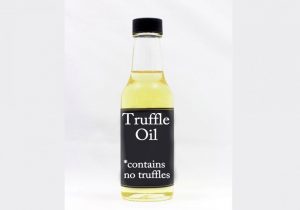
The majority of customers were easily duped as most people are not familiar with the true taste of a fresh truffle. But what about the chefs? Perhaps many of those outside of Italy had not had many opportunities to sample white truffles and could plead ignorance if they really had to. Others in the restaurant business were surely part of the ruse. Put it this way, if you have tasted both truffles and truffle oil you know that the oil tastes absolutely nothing like a white truffle. There other forty-odd gases found in a white truffle which are missing in the oil, so it completely lacks the nuances and depth of flavour found in the real thing. Truffle oil comprises one singular overriding smell that hits you like a punch in the nose. Surely professionals could tell the difference.
Most chefs understandably have chosen not to address the matter of whether they were taken in or were part of the game. They just don’t use the stuff any more.
So what happens when a product falls out of favour like this? Truffle companies needed to find a way to keep selling their product even though by now people had got wise and the reputation of truffle oil had been severely tarnished.
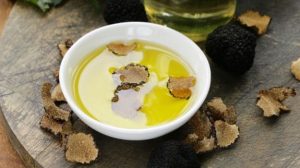
Very quickly there were some curious new developments. Realising that the public were no longer drooling over their extravagantly-priced bottles of chemically infused sunflower oil, truffle companies turned their talents to making ‘natural truffle oil’.
Several companies claim that they now use processes such as vacuum extraction in order to create naturally infused truffle oils as opposed to artificially infused oils.They are vexingly vague about details but maintain that the technique they now employ is similar to that used to extract CBD from the cannabis plant.
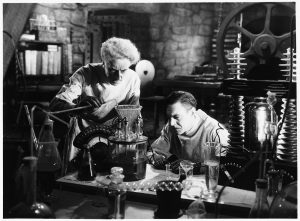
Oil is used as the vehicle to carry this gassy extraction and occasionally some truffle remnants are thrown in the bottle lest you forget that truffle oil is now natural. A little reminder that the companies have reinvented their product as something organic – world’s apart from the nasty chemically-based truffle oil they used to sell and have now handily forgotten about. Investigations have shown that this ‘natural’ oil is not what it says on the label. Despite vehement protestations,the companies are still up to their old tricks it seems.

A second ruse that you should be aware of are the following shenanigans which several leading truffle companies are guilty of. This semi-deception is aimed at those who are not au fait with the truffle’s Latin names. In other words, the vast majority of the general populace.
One leading manufacturer of truffle products sells :White Truffle Oil. There is a label on the bottle which say White Truffle Oil in large letters and the ingredients list ‘white truffles’
However you are probably not buying what you thought you were buying as more thorough search reveals the following details hidden within the small print.
‘Double concentrated truffle oil made with the highest quality European White Truffles (Tuber Borchii) & extra virgin olive oil.’
There are two kinds of white European truffle – the tuber magnatum pico, which is known as the Alba truffle or the white winter truffle and the tuber borchii, the spring white truffle otherwise known as the bianchetto. The latter bears no relation to the expensive white truffle everyone makes a fuss about. Tuber borchii is far inferior in flavour and as a result costs a fraction of the price of tuber magnatum pico.
Nothing illegal in this truffle company’s practice but still rather dubious. Unless they presume the public know what ‘tuber borchii’ are? Which isn’t likely, there isn’t a great market for tuber borchii, in fact most consumers are not aware of their existence. So unless you are a white spring truffle fan, you need to check the small print carefully.
To make matters worse there are also health concerns regarding the chemical contents of ‘truffle’ oil. The Material Safety Data Sheet on 2,4-dithiapentane has many cautions and warnings. As well as being flammable, it is listed as being a severe irritant to eyes, lungs and skin. Ingested the chemical can cause central nervous system depression. Inhaled, it can lead to delayed pulmonary edema. Just so you know.
Some people love truffle oil, others start foaming at the mouth at the mention of the name. Personally I love it. I have never eaten it but we use it for training our truffle puppies. I put drops of synthetic oil on old socks and hide them around the house when the dogs are starting out. Other people put truffle oil on their chips or popcorn, and why not if that is what you like?
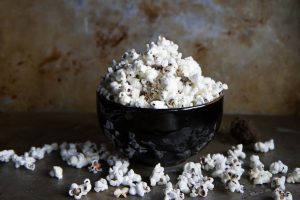
The most annoying thing about truffle oil is not that it doesn’t taste like truffle nor that it’s over-used. What has really ralled people is all of the misleading drivel. Truffle companies have been quick to exploit the fact that customers tend to be unfamiliar with ingredients as rare as truffles. Their shady behaviour is unremitting, never stopping simply taking on new forms. If that is not enough to put you off truffle oil, then at least check the label before you buy – you might even come away with a clearer idea about what is actually in the bottle.




